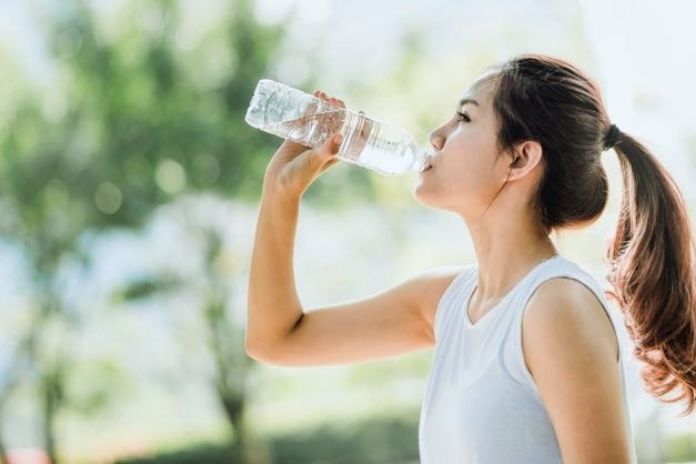Water is the most abundant element on the planet and, not coincidentally, also in our bodies. It usually represents 60% of an adult man’s weight; in women, the percentage is between 50% and 55%. She is responsible for keeping our organs in good working order, so it is essential to analyze the importance of water and hydration.
Water helps lubricate the brain and joints, cushioning impacts. Muscles and brain are about 75% water, blood and kidneys 81%, liver about 71%, bones about 22%, and adipose tissue about 20%. As if that weren’t enough, water transports nutrients and takes waste away from the body’s cells.
Water and hydration also help control body temperature by dissipating skin heat and perspiration heat.
Pregnant women and women who are breastfeeding need to increase water consumption because, during pregnancy, the woman has an increase in blood circulation. During breastfeeding, the same thing happens. It is essential to create the habit of drinking water, just as we have the habit of having lunch, breakfast, or dinner.
Water performs several essential functions for the body to work correctly and maintain health. Among the fundamental tasks of moisture and hydration for the body are:
- Transport of nutrients to body cells and tissues;
- Aid in the elimination of toxins;
- Regulation of body temperature;
- Fundamental for various physiological processes such as absorption, digestion, and excretion;
- Improves the functioning of the circulatory system.
Why Do We Feel Thirsty On Hot Days?
As we have already seen, water constitutes about 60% to 70% of an adult’s body weight. Its volume in the body is constant through some physiological means. This way, the amount consumed is similar to the book lost in feces, urine, sweat, and breath. This is because the body resists water content changes, keeping its levels stable.
So, when it’s too hot, we lose water through sweat, which is used to cool the body. Baroreceptors in the central nervous system sense changes in water level, and antidiuretic hormone (vasopressin) is released, causing the kidneys to retain more water.
In this situation, the kidneys release renin, another hormone, to produce angiotensin II, which has several functions, including increased thirst, a relevant signal for fluid consumption, and total body water balance.
The Importance Of Hydration During Physical Activity
Muscles demand substances such as glucose and oxygen during exercise, and water is one of the primary vehicles.
During physical activity, the human body loses large amounts of fluid through sweat; this is how the body maintains the temperature around 36.5ºC, evaporating water through the skin and cooling the organism, which is very similar to a radiator.
During perspiration, water and electrolytes are lost, and if there is no appropriate compensation in time, the person can become dehydrated and even lose part of their physical conditioning.
This loss of physical conditioning occurs because, when there is no hydration, the body tends to seek fluids from other body parts, such as the muscles, forcing high blood pumping and an increase in heart rate.
The increase in heart rate generates a decrease in respiratory capacity and thus negatively affects performance in physical activities. In this way, the practitioner becomes exhausted quickly and cannot continue the exercise with quality, so the guidance of a sports nutrition specialist is essential for the practice.
The loss of body fluid, which approaches 4% or more, goes to 20 to 30% during the practice of physical activity, requiring a more significant effort on the part of the athlete, causing him to reach exhaustion more quickly.
On the other hand, if adequate water consumption and hydration are good, the body maintains its normal functioning, avoiding excessive wear and tear.
Also Read: What Happens To Your Body When You Are Deficient In Vitamins?

